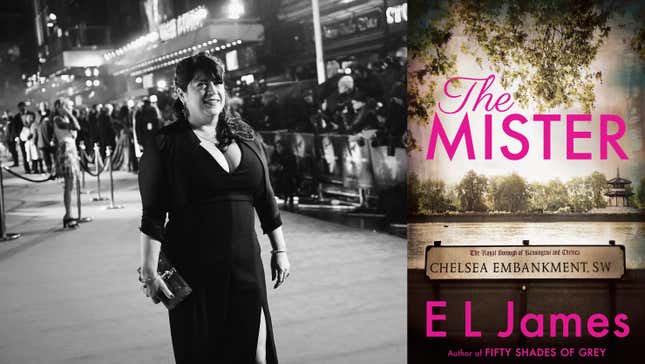

With The Mister, E.L. James has done a great service to the romance novel, by demonstrating just how hard it is to write a good one.
The Mister follows the romance between Maxim Trevelyan, a rich young playboy Londoner recently elevated to an earldom after the death of his older brother, and Aleissa Demachi, the young Albanian immigrant who cleans his house. His “daily,” as the dictionary definition provided at the opening of the book helpfully explains. Despite a plot structure that recalls the 1914 film serial The Perils of Pauline, a melodrama whose heroine was in constant danger, there is no tension to The Mister, and it’s tension that makes a romance novel hum: The structure of the genre is to keep characters apart in convincing and creative ways, despite an ending that’s a foregone conclusion, until finally uniting them in a satisfying manner. Simple in theory; difficult in practice. The craft of the romance novel has been wholly obscured by narratives about how romances are nothing but formula fiction, and if you’ve read one, you’ve read them all.
Aleissa has fled Albania and an arranged marriage with a brutish local man, only to fall into the hands of sex-traffickers, whom she escapes, before walking to the home of a Polish family friend, who sets her up with a job cleaning Maxim’s house, which is filthy, because he is a 26-year-old man with no appreciation for other people’s work, because he’s never had to work himself. He is immediately drawn to her; when the sex-traffickers try to kidnap her again, he spirits her away to his family estate in Cornwall. They inevitably fall in love.
Maxim and Aleissa are fundamentally poorly drawn characters. He is basically a pleasure-seeking wastrel, though he sometimes works as a male model, DJ, photographer, or composer. Here’s how Maxim’s first-person sections go: He has a thought; the thought distresses him; he reacts to his own thought, thinking: “Fuck.” At least three times, he thinks to himself: “Fuck a duck.”
-

-

-

-

-

-

-

-

-

-

-

-

-

-

-

-

-

-

-

-

-

-

-

-

-

-

-

-

-

-

-

-

-

-

-

-

-

-

-

-








































